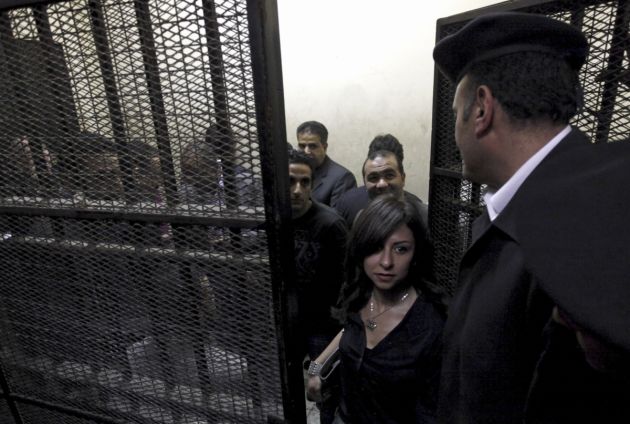International standards violated by Eygpt's NGO bill, say UN experts

A group of United Nations independent human rights experts has urged the Egyptian Shura Council not to adopt a draft law on civil society organizations.
In its current form, say the experts, the proposed law does not comply with international human rights norms and standards relating to freedom of association.
Non-governmental organizations with foreign connections say that they are being squeezed by Egyptian authorites restricting their funding.
"It is highly regrettable that a government that was formed as a response to peaceful social activism can place such restrictions on people's right to freedom of association," said the UN Special Rapporteurs on freedom of peaceful assembly and of association, on human rights defenders, and on freedom of opinion and expression.
"All actors should play a role in the conduct of public affairs," said three experts in a statement on March 28.
Since the toppling of the Mubarak regime, Egypt's NGOs enjoyed a brief renaissance in a country where they filled the void of civil society.
During and after the Egyptian revolution that overthrew the rule of iron-fisted President Hosni Mubarak, a number of NGOs began operating in the North African country.
Yet two years after the time known as the Arab Spring, the Islamist government has begun placing restrictions on the foreign funding of Egypt's nonprofit organizations.
In February last year, an Egyptian court in February 2013 charged 43 international and Egyptian NGO workers with receiving U.S. funding without appropriate authorization while doing their work in Egypt.
Amnesty International and the Egyptian Organization for Human Rights in February were told by the Insurance and Social Affairs Ministry instructing local organizations not to engage with "international entities" unless they had permission from the security agency.
The U.N. human rights experts regretted that valuable recommendations put forward by Egyptian civil society actors were not taken into account in the drafting of the text.
"We are seriously concerned that numerous provisions contained in the draft law may be used to hamper the legitimate work of civil society organizations, particularly those advocating human rights," they noted.
The experts welcomed the Egyptian authorities' initiative to revise law 84/2002 due to its lack of compliance with international standards; however, they warned that "the draft legislation currently being considered by the Shura Council has a number of serious shortcomings."
According to the draft legislation on civil society organizations, associations' funds will be considered public funds; and associations will also be banned from obtaining funds from abroad without prior permission.
"These provisions, combined with the right for the administration and any interested individual to object to any decision taken by an association or to any of its activities, will compromise the role of independent civil society organizations, which is essential, particularly in times of political transition," warned the Special Rapporteur on the rights to freedom of peaceful assembly and of association, Maina Kiai.
"By stipulating that representatives of associations may be subjected to prison sentences and heavy fines if the organization receives foreign funding without authorization, the authorities will deter civil society from seeking funding, thereby restricting an integral and vital part of the right to freedom of association."
The draft law also limits the activities which can be carried out by a foreign non-governmental organization to those consistent with the needs of Egyptian society and in accordance with the priorities of development plans, and taking into account the public order and morals.
"For human rights defenders, acting freely and independently to assess the human rights situation is a fundamental aspect of their role, regardless of their official status," underlined the Special Rapporteur on human rights defenders, Margaret Sekaggya.
"The draft law gives excessive power to the authorities and this may well ultimately impede associations from fulfilling their crucial function in the promotion and protection of human rights."
Heba Morayef, director of the Middle East and North Africa Division of Human Rights Watch in Egypt told Al-Monitor on March 14, "For the international NGOs it will be extremely restrictive, really elevating Egypt to a group of countries that includes Russia, Ethiopia [and] Zimbabwe, when it comes to complete paranoia about the work of international organizations."
The three UN independent experts recalled Egypt's adoption of an important resolution on human rights defenders passed by the UN Human Rights Council on 21 March 2013.
Human Rights Watch wrote in its 2013 World Report on Feb. 1, "The euphoria of the Arab Spring has given way to the sobering challenge of creating rights-respecting democracies.
"The willingness of new governments to respect rights will determine whether those uprisings give birth to genuine democracy or simply spawn authoritarianism in new forms."